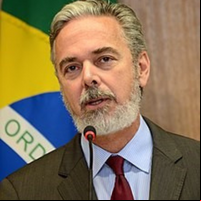The 61st Munich Security Conference, held from February 14 to 16, 2025, brought together global leaders to discuss the main challenges of international security. Under the theme “Multipolarization”, the debates addressed issues such as global governance, democratic resilience and climate security, as well as analysing the international order, regional crises, the future of the transatlantic partnership and Europe's role in the world. p6i4r
The conference served as a platform for discussions on the reconfiguration of international alliances, the growing influence of emerging powers and the challenges posed by multipolarization on the global stage. As in previous years, the conflict in Ukraine featured prominently in the discussion. During the event, the President of the European Council, António Costa, emphasized the importance of the European Union ing Ukraine, stressing that “there can be no lasting peace without Ukraine and without the EU”. On the other hand, US Vice-President JD Vance's speech confirmed Washington's isolationist stance towards its historic European allies.
The absence of a concrete result from the meeting called by French President Emmanuel Macron after the conference, as well as the start of talks in Riyadh between the US and Russia on an armistice for the war, are indicators of a political hollowing out of Europe.

.jpg)
